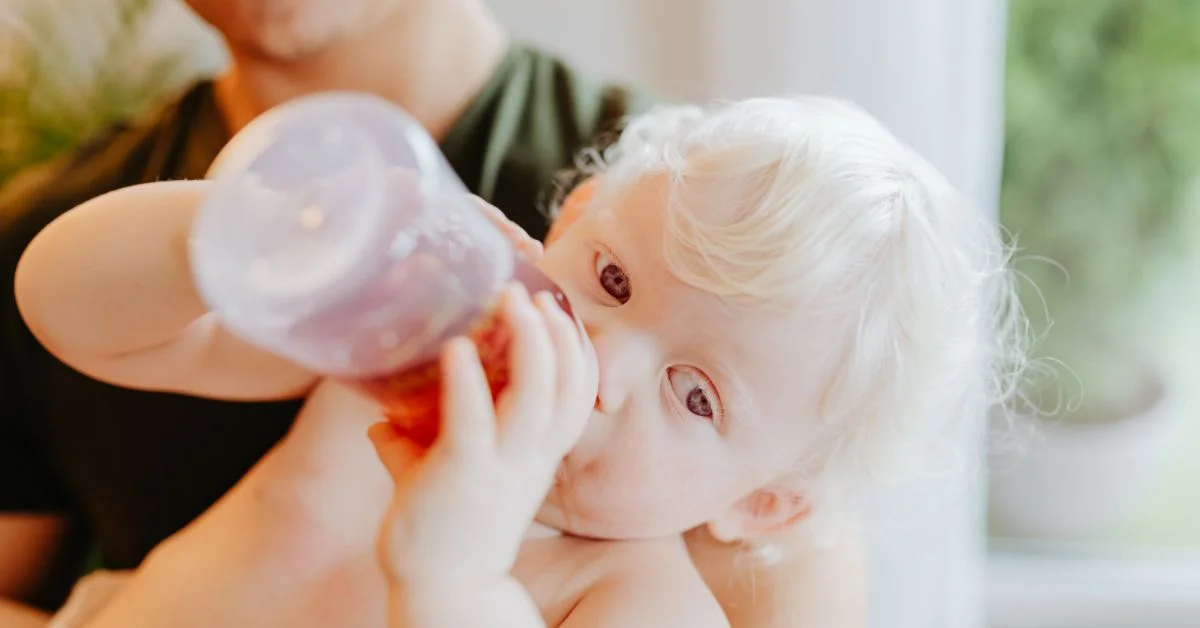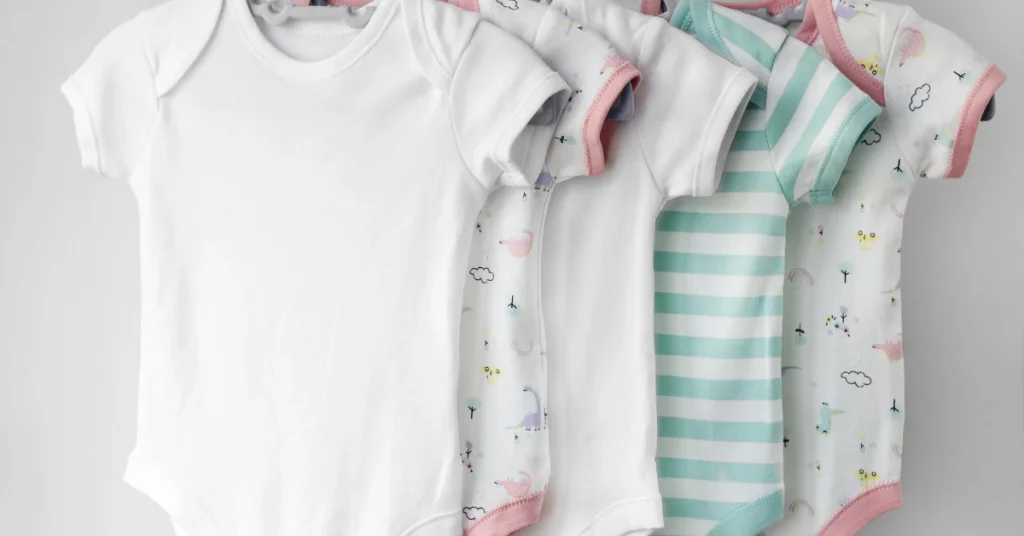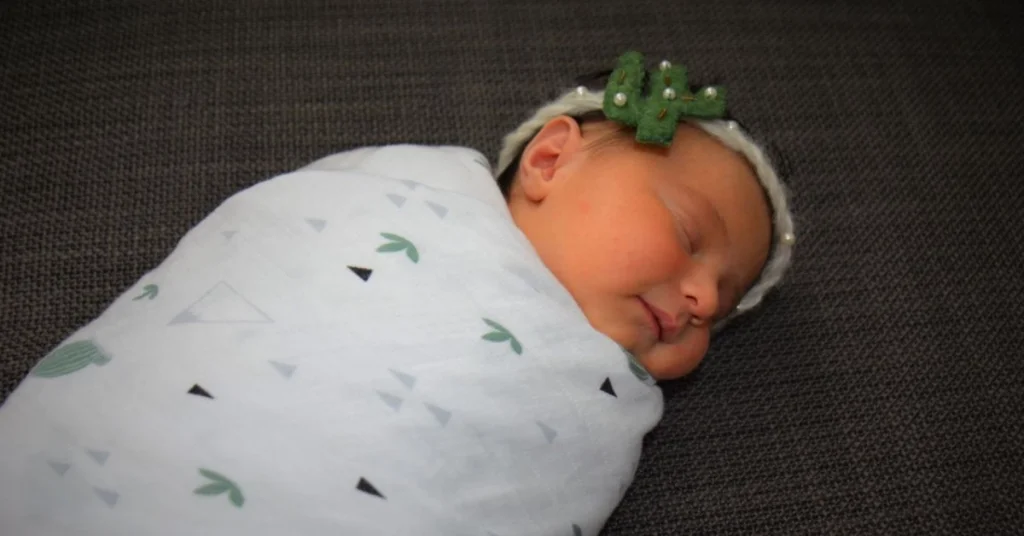Learn about reasons why your baby might be chewing their bottle nipple and how to deal with it.
The products mentioned on this page were independently selected by Babycious editors. As an Amazon Associate, Babycious may earn a commission from qualifying purchases.

Photo by Karolina Grabowska
It can be quite frustrating when your child won’t stop chewing on their bottle nipple. Other than the increased risk of tearing the bottle nipple and possibly ingesting bits of silicone or choking on them, constant nipple chewing instead of swallowing the milk can result in your baby eating less than they should. So why do babies chew on bottle nipples and how can you deal with it?
There are a few reasons for this behavior, here are 5 of the most common reasons why your baby might be chewing on their bottle nipple and the best ways to deal with it:
Reason 1: Your Baby Is Teething
This is one of the most common reasons why babies chew on anything they can get their hands on, including bottle nipples. The pressure from chewing can help to relieve some of the discomfort that comes with teething.
If your baby is teething, they might be showing other signs like drooling, being cranky, and chewing on hands. Fevers and icky tummies can also happen while your baby is teething and may also affect your baby’s sleeping habits. Teething can happen as early as two months old and can be on and off with spikes whenever a tooth is cutting its way through the gums.
If you think this might be the reason, try taking away the bottle as soon as your baby starts chewing on it and offer them a teething toy instead right away. You could also try some homeopathic teething drops to take the edge off or try milk popsicles that you can make using these handy popsicle molds from amazon.
Reason 2: the Nipple Flow Is Too Slow
Another possibility is that your baby is frustrated with how slow (or sometimes how fast) the milk is coming out from the bottle.
Bottle nipples come in different shapes and flows, so it’s important to choose one that will fit your baby’s needs and age. If the nipple is too slow, your baby might get impatient and start chewing on it to try and get the milk to come out faster.
To fix this, you can move up to the next nipple size if you suspect that the flow is too slow for your baby.
For babies aged 3 months and up this means :
- moving to the level 2 nipples if you are using Dr. Brown’s bottles.
- moving to Medium flow nipples with two holes if you are using Comotomo bottles.
- moving to Flow 4 nipples if you are using Philips Avent bottles.
For babies aged 6 months and up this means :
- moving to the level 3 nipples if you are using Dr. Brown’s bottles.
- moving to Fast flow nipples with three holes if you are using Comotomo bottles.
- moving to Flow 5 nipples if you are using Philips Avent bottles.
Reason 3: Your Baby Is Full or Not Really Hungry
Sometimes babies are full but still have the urge to suck for comfort. Your baby might be done eating but still want to suck on the bottle nipple for the calming effect it has.
If you think this might be the case, try burping them. Once you notice that your baby is done eating, don’t force them to finish the bottle. It’s important to respect your baby’s cues and not overfeed them. Your baby will let you know if and when they want more.
You can also try offering a pacifier after burping your baby as a way to soothe them without the bottle. Usually, if this is what’s making them chew on the bottle they will happily take the pacifier and continue sucking on it.
Reason 4: Your Baby Is Ready for Solids
If your baby is around four to six months and is eyeing your food all time, they very well could be ready for solids!
The American Academy of Pediatrics recommends that babies be started on solids around six months old, but some babies can show signs of readiness as early as four months.
Signs that your baby is ready to start solid foods include :
- Reaching out for food.
- Putting everything in their mouth.
- Trying to grab food off your plate.
- Watching you eat with intense focus.
If your baby is showing these signs, you can try mixing up their bottles. You can try blending your pumped milk with a banana or some avocado and see how they like it.
Reason 5: Your Baby Is Ready for A Sippy Cup
If your baby is around twelve months old, they could be ready to graduate from bottles and move to using sippy cups.
This is a big milestone for babies and they can sometimes get impatient or frustrated trying to figure out how to use a sippy cup. You might need to go through different sippy cups before finding one that your baby likes but once they get the hang of it, they’ll be sipping like a pro in no time.
We really liked the Tommy Tippee sippy cups with a flip-top straw. The straw is very soft and easy to drink from for little ones just starting out with a sippy cup, and they are leakproof so you don’t have to worry about any accidents.
When Should You Worry?
If your baby is chewing on their bottle nipple and you’ve checked for all the reasons above and none of them seem to fit, here are a few valid reasons to consult with your pediatrician:
- Your baby is losing weight. If your baby is eating less per feeding due to them chewing on the bottle nipple, they might not be getting enough calories. This can lead to weight loss, so it’s important to consult with your pediatrician if you think this might be the case.
- Your baby has fewer wet diapers. Having fewer wet diapers could mean that your baby is dehydrated. This is particularly concerning if your baby has also started to vomit or has diarrhea.
- Unusual behavior. If your baby is behaving unusually like being lethargic or having difficulty staying awake after starting to chew on the bottle nipple, this could be a sign of a different issue that needs medical attention.
It could also be worthwhile to check for a tongue tie. If your child has one, even if it’s small or far back, it could be causing them pain when trying to eat and might be the reason why they’ve started chewing on the bottle nipple.
Final Thoughts
If your baby has started to chew on their bottle nipple, there are a few different reasons why this might be happening.
Most of the time, it’s nothing to worry about and is simply a phase that your baby is going through. If you’re concerned, however, consult with your pediatrician. They will be able to give you the best advice for your particular case.
The purpose of this article is informative and educational only. It’s not a substitute for medical consultation or medical care. We do not accept any responsibility for any liability, loss, or risk, personal or otherwise, incurred as a consequence, directly or indirectly, from any information or advice contained here. Babycious may earn compensation from affiliate links in this content.



